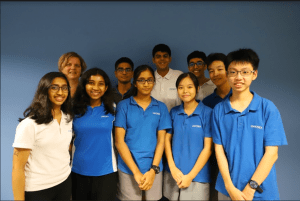After 2 years, I have completed my Model United Nations journey. I have been part of 5 HS conferences, as a delegate and a chair. During the Singapore International Model United Nations, I was fortunate enough to win the Most Diplomatic Delegate award in the Human Rights Committee. The 2 learning outcomes that I want to reflect on are learning outcomes 1 and 6.
LO1: Strength and Growth
Through these 2 years, I have not only grown in my understanding of current affairs, but also my ability to speak in front of large audiences. Of course, by being part of the Student Council I was used to speaking in front of large audiences, but MUN taught me how to respond to tough questions on the spot and to have the courage to debate controversial issues. During MUN@UWCSEA 2018, I was the delegate of North Korea, a country that holds a controversial stance on the use of nuclear energy. Hence, being out of my comfort zone, I learned to enjoy being “the bad guy” and, utilizing the skills that I learned from delegate training, I was able to persevere.
LO6: Global engagement
Being part of MUN has raised my awareness on the plethora of issues that our world faces. Problems such as the economic crisis in Venezuela, the problem with Nuclear Waste, gun violence, lack of vaccinations, etc. Putting myself in a position to come up with solutions to these problems has allowed me to become engaged with the many societal and political instabilities that are occurring around the world. Being able to train young individuals to do this will definitely help create a new generation of leaders that can stop these problems in the future.


